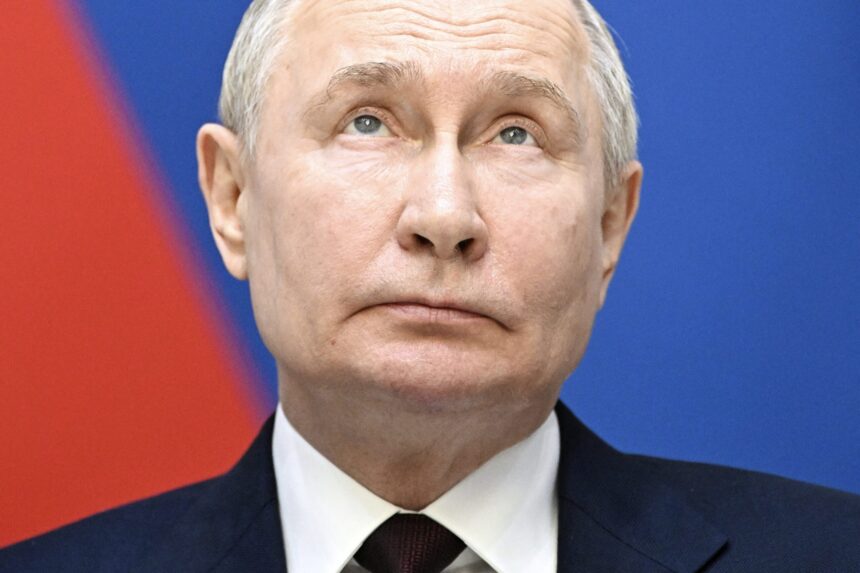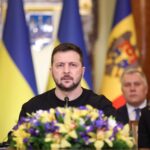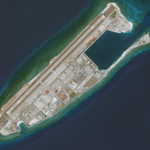Summary by Geopolist | Istanbul Center for Geopolitics:
Senior officials in the Biden administration are worried that Russian President Vladimir Putin may plan some disruptive actions around the NATO summit scheduled for July 9-11 in Washington. There is a possibility that Putin could escalate military operations in Ukraine.
Given Putin’s track record of using global events to his advantage, a surprise attack in the summer is not unexpected. The article suggests that NATO should take proactive measures to show unity and decisiveness. One possible step could be offering Ukraine a clearer path towards NATO membership and lifting restrictions on the use of allied weapons. By doing so, NATO aims to counter Putin’s confidence and maintain the momentum of Ukraine’s efforts..
For more details, you can read the full article here below.
Senior Biden administration officials are concerned that Russian President Vladimir Putin has more surprises in store for them regarding Ukraine, timed to disrupt and upstage NATO’s seventy-fifth anniversary summit in Washington from July 9 to 11.
“He wants nothing more than to rain on our parade,” one senior US official recently told me. Some administration officials are considering potential scenarios and possible responses, though giving Ukraine full focus is difficult with the Middle East war and so much else in play.
There is a broad range of possibilities. Putin might, for example, launch an even fiercer and wider summer military offensive in Ukraine than the one currently underway. He may unleash new weaponry, perhaps even a space-based weapon. At the same time, he may advance a more determined (but still disingenuous) peace proposal or ceasefire effort designed mainly to appeal to global opinion, even as NATO members are providing Ukraine more military heft.
Given Putin’s past behavior around major global events, a summer surprise would seem, well, not so surprising. Russia’s invasion of Georgia in 2008 was timed to coincide with the Beijing Summer Olympics; its invasion of Ukraine in 2014 took place during the Winter Olympics in Sochi, Russia; and its second invasion of Ukraine in February 2022 followed a meeting between Putin and Chinese leader Xi Jinping ahead of the Beijing Winter Olympics that year.
Beyond Putin’s fondness for the global spotlight at such moments, there are other reasons to be concerned that this could be a summer of maximum danger for Ukraine, and thus also for the NATO Alliance just days before the Republican and Democratic political conventions in the United States.
The best way to answer—even better, to preempt—any potential Putin summer surprise would be through a surprise of NATO’s own at its summit.
Putin appears determined, even though his position is not enviable. Over the space of several weeks, the US Congress finally approved its big aid package and several countries agreed that Ukraine could use their weapons to target military sites in Russia. France, meanwhile, is quickly developing an initiative to deploy soldiers as trainers in Ukraine. But there is no evidence that any of this has persuaded Putin to reconsider his aggressive plans for Ukraine. Instead, he seems to have decided that he should redouble his offensive this summer, before more US war materiel arrives. Ukraine’s air defenses will remain vulnerable for many weeks to come.
There has been no slowdown in Russia’s ongoing offensive around Kharkiv—even as there has been almost no forward movement for weeks—and Putin’s relentless attacks on Ukraine’s power sources and infrastructure continue to do substantial damage. The Kremlin still has substantial reserves that can be sent into the Kharkiv offensive, to expand the thus far unsuccessful campaign in the Donbas to take Chasiv Yar, or to start a new offensive in the north toward Sumy.
Besides these reserves, there are other factors that encourage Putin. Kyiv continues to face a manpower shortage due principally to a culture that believes young men should not be drafted before reaching their late twenties. The Zelenskyy administration and the Rada recently took a step to solve this problem by lowering the draft age by two years to twenty-five, but this politically difficult decision does not solve the problem of overused frontline troops.
Putin also takes comfort from his reelection in March and his two-day meeting with Xi in Beijing last month. At the same time, he must see the crisis in Gaza and the US election campaign as welcome distractions for US leadership. That’s why a senior US official told me that Putin feels a measure of confidence.
At age seventy-one, Putin has cemented his grip on Russian power, with official results showing that he took 87 percent of the vote in March, an outcome he is using to further justify his war on Ukraine. His new six-year term, should he complete it, would enable him to surpass Joseph Stalin as Russia’s longest-serving leader in two centuries. The subtext: The world will have to deal with an emboldened Russia for the foreseeable future.
Putin’s meeting with Xi in May underscored the Chinese leader’s determination to double down on his support of his Russian counterpart. Xi is doing so despite growing US and European criticism and increased leaks regarding the specifics of how China is enabling and empowering Russia’s continued war.
Speaking about the Ukraine war, Putin thanked Xi for “those initiatives it was putting forward to regulate this problem.” Said Putin, “This partnership is without a doubt exemplary for how the relationship between neighboring states should be.”
“The China-Russia relationship today is hard-earned, and the two sides need to cherish and nurture it,” said Xi.
US President Joe Biden’s recent measures to loosen the restrictions on Ukraine’s use of US weaponry to hit targets inside of Russia would have raised more concerns in Russia had it not been for the limited nature of the lifted restrictions, applying only to areas in Russia from which the eastern city of Kharkiv is being hit.
During his speech commemorating the eightieth anniversary of D-Day last week, Biden drew a direct connection between the fight against fascism in World War II and the Ukraine war. He said the United States would “not walk away” from the conflict. “Because if we do,” he explained, “Ukraine will be subjugated, and it will not end there. Ukraine’s neighbors will be threatened. All of Europe will be threatened.”
Yet Russia’s experience is that Biden’s rhetoric is tougher than his readiness to provide US arms in a manner that would increase Ukraine’s chance of not just survival but victory.
Putin can also be reassured by Biden’s continued reluctance to support Ukraine’s membership in NATO, articulated again in a recent interview with the US president in TIME magazine. Biden’s comments opposing, in his words, the “NATOization of Ukraine” were a preemptive move by the US president before the upcoming NATO Summit. Alliance members will likely provide “a bridge” to NATO for Ukraine but not a time-determined path toward full membership and, with it, the security guarantee that has proven its worth for allies that border Russia.
The same Biden administration officials who worry about a summer surprise are hoping that Ukrainian forces can hold their defensive lines against the Russians in 2024 and then launch a new military offensive in 2025 with replenished supplies of munitions and soldiers. Then Ukraine might regain enough territory to improve its negotiating position.
The best way to answer—even better, to preempt—any potential Putin summer surprise would be through a surprise of NATO’s own at its summit, one that demonstrates a level of unity and purposefulness that would force Putin to rethink his Ukraine ambitions. One such surprise could be a more sharply defined and delineated Ukrainian path to Alliance membership, making clear to Putin that he can’t block that outcome through continued war. Another would be to lift all restrictions on Ukraine’s use of US and other allied weapons, removing once and for all any safe haven for Russian aggressors.
It’s time for Ukraine’s friends, at this moment of maximum danger, to steal the initiative from Putin through policies and practices that shake his confidence and restore Ukrainian momentum.
Wishful thinking remains an inadequate strategy to defeat Putin.
By: Frederick Kempe – president and chief executive officer of the Atlantic Council. You can follow him on Twitter: @FredKempe.
Source: atlanticcouncil.org







